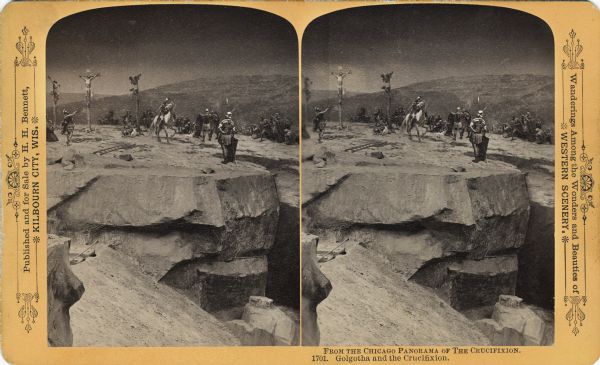THE SECOND CRUCIFIXION.

AN ANALYSIS OF
SECOND CRUCIFIXION.
The second crucifixion deals with the death
of Mahatma Gandhi, while the first one is about the death of Jesus Christ. On 30th
January 1948,the man who brought the mighty British empire was killed by the
people for whom he faught for.This day is remembered as Martyr’s day in India.
The second crucifixion is written by Larry
Collins, the author of Fall from
Grace and co-author with Dominique Lapierre
, of thebestselling Is Paris Burning?
and l’ll Dress You in the Morning. For
more than ten’ years Collins was a foreign correspondent for UPI and then for Newseek. DominiqueLapierre is the author of the best –
selling City of Joy andco-author of Is Paris Burning? And O Jerusalem.He
lived in France and was a senior reporter and editor for many years in Paris Match.
After India got independence in 1947, Jawaharlal Nehru became the first Prime
Minister and Sardar Vallabhbhai Patel became
the first deputy Prime Minister. Patel was not satisfied with the works of Nehru.
There was a disagreement between Nehru and Patel. Patel took this issue to Gandhi.
He said that he was not happy with Nehru and how he worked as a Prime Minister
and if Nehru did not change his way of working he would resign from his post. Gandhi
knew that without Patel, Nehru would not be able to handle a newly independent
country. He asked Patel to promise that he won’t resign from the post of Deputy
Prime Minister
Mahatma was known for his punctuality. In
the mean time discussing about the serious issue regarding the disagreement
between Nehru and Patel, Gandhiji was late for the evening prayer. The actual
time for the prayer was five in the evening. But Gandhiji arrived late. On his arrival
to Birla Bhawanhe wasassassinatedbyNaturam Godse whohadbeenalready waiting
there for Gandhiji‘s arrival.
The official announcement of the death news
was delayed to find out whether the assassin was Hindu or Moslem. If the
assassin turned out to be a Moslem, India would face a most ghastly massacre. The
director of AIR delayed the news and announced that the assassin was identified
as Hindu. Thus the slaughter was averted.
Lord
Mountbatten,the firstGovernor General of India,
reached Birla House on hearing this news. Already the two great leaders Nehru
and Patel were sitting overwhelmed with sorrow. Already Gandhiji had told
Mountbatten about the disagreement between Nehru and Patel and asked him to
bring them together. Moved by his words the two leaders embraced each other.
After completing this Mountbatten paid his
attention towards the funeral of Gandhiji. He suggested that Gandhiji‘s body
should be taken in a special train throughout the country, giving millions of
people a chance for the last darshan of
their greatleader. But Gandhiji‘s secretary said that Gandhi had expressed his
wish that his body would be cremated within twenty four hours as per Hindu
custom. The two leaders unwillingly consented to the idea.
Mountbatten asked Nehru to address the
mourning nation. Nehru said
“ The light has gone out of our lives and there is darkness
everywhere. I don’t know what to say you and how to say. Our beloved leader,
Bapu, as we called him, the father of our nation was no more. The light has
gone out, I said, and yet I was wrong. For the light that has shone in this
country was no ordinary light. The light that illumined this country for these
many years will illumine this country for many more years, and a thousand years
later, that light will be seen in this country and the world will see it and it
will give solace to innumerable hearts. “
The death news of Gandhiji spreaded like a
fire. The light whose disappearance Nehru mourned belonged not only to India
but to the whole world. The news moved to London right from King George IV down
to the common man. Tributes poured in from Paris, South Africa, the Vatican,
the US and Pakistan. India reacted to the news in the sorrowing silence of a
real hartal. People from the nearby states reached Delhi to have a last glimpse
of their leader. Gandhiji‘s body was placed on the second floor on the open
balcony of the Birla House for public view. There were trouble spots too. The
headquarters of the Hindu Maha Sabha and the R.S.S in the cities across the
nation were attacked. So they decided to conduct the funeral with the help of
military.
The next day Gandhiji was killed Hindustan Standard printed a single
paragraph as editorial
“ Gandhiji has been killed by his own people for whose
redemption he lived. This second crucifixion in the history of the world has
been enacted on Friday – the same day Jesus was done to death one thousand nine
hundred and fifteen years ago. Father forgive us. “
Thus Gandhiji‘s death is a great loss to
the whole world. He will remain in all our hearts as Mahatma forever.
WRITTEN BY.,
NITHYA SREE,,
I B.A ENG LITT.,,
KG CAS.,
COIMBATORE.,

Nice helpful
ReplyDeleteSo very good and super story
ReplyDelete